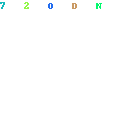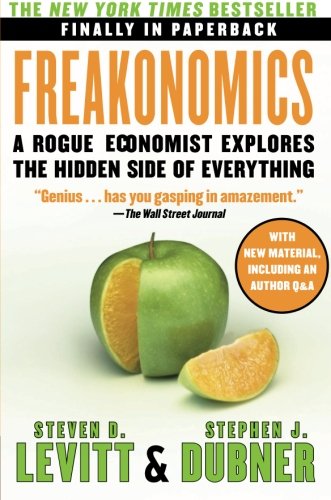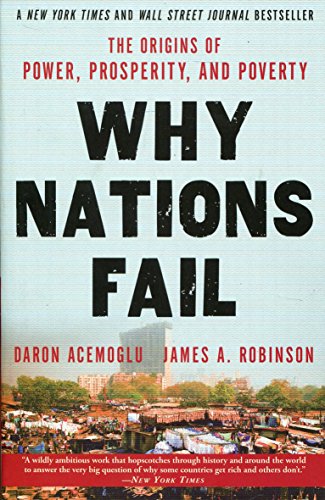Finding your suitable economics books is not easy. You may need consider between hundred or thousand products from many store. In this article, we make a short list of the best economics books including detail information and customer reviews. Let’s find out which is your favorite one.
Reviews
1. Basic Economics
Feature
Basic BooksDescription
Basic Economics is a citizen's guide to economics, written for those who want to understand how the economy works but have no interest in jargon or equations. Bestselling economist Thomas Sowell explains the general principles underlying different economic systems: capitalist, socialist, feudal, and so on. In readable language, he shows how to critique economic policies in terms of the incentives they create, rather than the goals they proclaim. With clear explanations of the entire field, from rent control and the rise and fall of businesses to the international balance of payments, this is the first book for anyone who wishes to understand how the economy functions.
This fifth edition includes a new chapter explaining the reasons for large differences of wealth and income between nations.
Drawing on lively examples from around the world and from centuries of history, Sowell explains basic economic principles for the general public in plain English.
2. The Economics Book: Big Ideas Simply Explained
Feature
DK Publishing Dorling KindersleyDescription
From Aristotle and Thomas Aquinas, to Adam Smith and John Maynard Keynes, to the top economic thought leaders of today, The Economics Book is the essential reference for students and anyone else with an interest in how economies work.Easy-to-follow graphics, succinct quotations, and thoroughly accessible text throw light on the applications of economics, making them relatable through everyday examples and concerns.
Employing DK's trademark visual approach, The Economics Book takes a frequently confusing subject and makes sense of it, clearly highlighting both historically important and emerging ideas in this critical field of science.
2014 The Mom's Choice Awards Gold Award Winner
3. Freakonomics: A Rogue Economist Explores the Hidden Side of Everything
Feature
Great product!Description
Which is more dangerous, a gun or a swimming pool?
What do schoolteachers and sumo wrestlers have in common?
How much do parents really matter?
These may not sound like typical questions for an economist to ask. But Steven D. Levitt is not a typical economist. He studies the riddles of everyday lifefrom cheating and crime to parenting and sportsand reaches conclusions that turn conventional wisdom on its head.
Freakonomics is a groundbreaking collaboration between Levitt and Stephen J. Dubner, an award-winning author and journalist. They set out to explore the inner workings of a crack gang, the truth about real estate agents, the secrets of the Ku Klux Klan, and much more.
Through forceful storytelling and wry insight, they show that economics is, at root, the study of incentiveshow people get what they want or need, especially when other people want or need the same thing.
4. The New Confessions of an Economic Hit Man
Feature
The New Confessions of an Economic Hit ManDescription
Shocking Bestseller: The original version of this astonishing tell-all book spent 73 weeks on the New York Times bestseller list, has sold more than 1.25 million copies, and has been translated into 32 languages.New Revelations: Featuring 15 explosive new chapters, this expanded edition of Perkinss classic bestseller brings the story of economic hit men (EHMs) up to date and, chillingly, home to the US. Over 40 percent of the book is new, including chapters identifying todays EHMs and a detailed chronology extensively documenting EHM activity since the first edition was published in 2004.
Former economic hit man John Perkins shares new details about the ways he and others cheated countries around the globe out of trillions of dollars. Then he reveals how the deadly EHM cancer he helped create has spread far more widely and deeply than ever in the US and everywhere elseto become the dominant system of business, government, and society today. Finally, he gives an insider view of what we each can do to change it.
Economic hit men are the shock troops of what Perkins calls the corporatocracy, a vast network of corporations, banks, colluding governments, and the rich and powerful people tied to them. If the EHMs cant maintain the corrupt status quo through nonviolent coercion, the jackal assassins swoop in. The heart of this book is a completely new section, over 100 pages long, that exposes the fact that all the EHM and jackal toolsfalse economics, false promises, threats, bribes, extortion, debt, deception, coups, assassinations, unbridled military powerare used around the world today exponentially more than during the era Perkins exposed over a decade ago.
The material in this new section ranges from the Seychelles, Honduras, Ecuador, and Libya to Turkey, Western Europe, Vietnam, China, and, in perhaps the most unexpected and sinister development, the United States, where the new EHMsbankers, lobbyists, corporate executives, and otherscon governments and the public into submitting to policies that make the rich richer and the poor poorer.
But as dark as the story gets, this reformed EHM also provides hope. Perkins offers a detailed list of specific actions each of us can take to transform what he calls a failing Death Economy into a Life Economy that provides sustainable abundance for all.
5. Why Nations Fail: The Origins of Power, Prosperity, and Poverty
Feature
Crown BusinessDescription
Brilliant and engagingly written, Why Nations Fail answers the question that has stumped the experts for centuries: Why are some nations rich and others poor, divided by wealth and poverty, health and sickness, food and famine?Is it culture, the weather, geography? Perhaps ignorance of what the right policies are?
Simply, no. None of these factors is either definitive or destiny. Otherwise, how to explain why Botswana has become one of the fastest growing countries in the world, while other African nations, such as Zimbabwe, the Congo, and Sierra Leone, are mired in poverty and violence?
Daron Acemoglu and James Robinson conclusively show that it is man-made political and economic institutions that underlie economic success (or lack of it). Korea, to take just one of their fascinating examples, is a remarkably homogeneous nation, yet the people of North Korea are among the poorest on earth while their brothers and sisters in South Korea are among the richest. The south forged a society that created incentives, rewarded innovation, and allowed everyone to participate in economic opportunities.
The economic success thus spurred was sustained because the government became accountable and responsive to citizens and the great mass of people. Sadly, the people of the north have endured decades of famine, political repression, and very different economic institutionswith no end in sight. The differences between the Koreas is due to the politics that created these completely different institutional trajectories.
Based on fifteen years of original research Acemoglu and Robinson marshall extraordinary historical evidence from the Roman Empire, the Mayan city-states, medieval Venice, the Soviet Union, Latin America, England, Europe, the United States, and Africa to build a new theory of political economy with great relevance for the big questions of today, including:
- China has built an authoritarian growth machine. Will it continue to grow at such high speed andoverwhelm the West?
- Are Americas best days behind it? Are we moving from a virtuous circle in which efforts by elites to aggrandize power are resisted to a vicious one that enriches and empowers a small minority?
- What is the most effective way to help move billions of people from the rut of poverty to prosperity? More philanthropy from the wealthy nations of the West? Or learning the hard-won lessons of Acemoglu and Robinsons breakthrough ideas on the interplay between inclusive political and economic institutions?
Why Nations Fail will change the way you look atand understandthe world.
6. The Little Book of Economics: How the Economy Works in the Real World
Feature
WileyDescription
An accessible, thoroughly engaging look at how the economy really works and its role in your everyday lifeNot surprisingly, regular people suddenly are paying a lot closer attention to the economy than ever before. But economics, with its weird technical jargon and knotty concepts and formulas can be a very difficult subject to get to grips with on your own. Enter Greg Ip and his Little Book of Economics. Like a patient, good-natured tutor, Greg, one of today's most respected economics journalists, walks you through everything you need to know about how the economy works. Short on technical jargon and long on clear, concise, plain-English explanations of important terms, concepts, events, historical figures and major players, this revised and updated edition of Greg's bestselling guide clues you in on what's really going on, what it means to you and what we should be demanding our policymakers do about the economy going forward.
- From inflation to the Federal Reserve, taxes to the budget deficit, you get indispensible insights into everything that really matters about economics and its impact on everyday life
- Special sections featuring additional resources of every subject discussed and where to find additional information to help you learn more about an issue and keep track of ongoing developments
- Offers priceless insights into the roots of America's economic crisis and its aftermath, especially the role played by excessive greed and risk-taking, and what can be done to avoid another economic cataclysm
- Digs into globalization, the roots of the Euro crisis, the sources of China's spectacular growth, and why the gap between the economy's winners and losers keeps widening
7. Economics
Description
When it comes to explaining fundamental economic principles by drawing on current economic issues and events, there is no one more effective than Nobel laureate and New York Times columnist Paul Krugman and co-author, Robin Wells. In this best-selling introductory textbook, Krugman and Wells signature storytelling style and uncanny eye for revealing examples help readers understand how economic concepts play out in our world.
This new edition is revised and enhanced throughout, including a much stronger array of superior online tools that are part of a complete, integrated online learning system.
8. Nudge: Improving Decisions About Health, Wealth, and Happiness
Feature
Great product!Description
From the winner of the 2017 Nobel Prize in Economics, Richard H. Thaler, and Cass R. Sunstein: a revelatory look at how we make decisionsfor fans of Malcolm GladwellsBlinkand Daniel KahnemansThinking Fast and SlowNew York Timesbestseller
Named a Best Book of the Year by TheEconomist and theFinancial Times
Every day we make choicesabout what to buy or eat, about financial investments or our childrens health and education, even about the causes we champion or the planet itself. Unfortunately, we often choose poorly. Nudge is about how we make these choices and how we can make better ones. Using dozens of eye-opening examples and drawing on decades of behavioral science research, Nobel Prize winner Richard H. Thaler and Harvard Law School professor Cass R. Sunstein show that no choice is ever presented to us in a neutral way, and that we are all susceptible to biases that can lead us to make bad decisions. But by knowing how people think, we can use sensible choice architecture to nudge people toward the best decisions for ourselves, our families, and our society, without restricting our freedom of choice.
More than 750,000 copies sold








